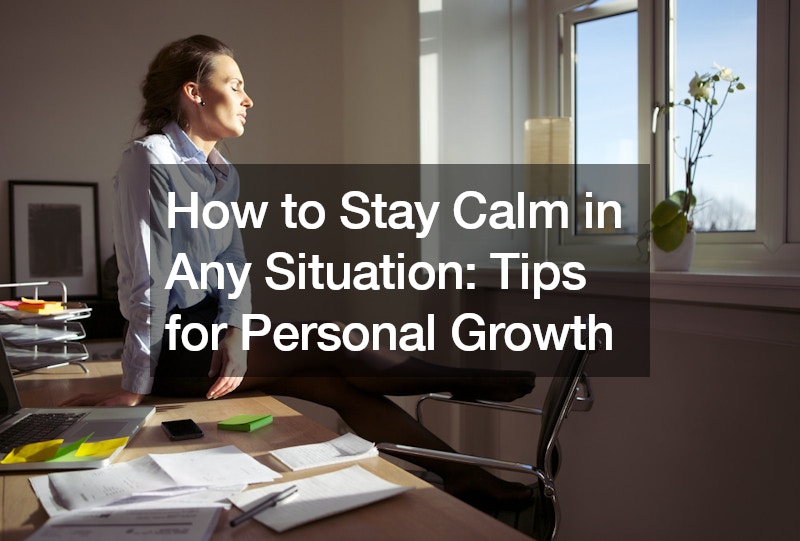In today’s fast-paced world, maintaining a sense of calmness can be challenging, especially when faced with stressful or unexpected situations. However, mastering the ability to stay calm, composed, and collected is not only beneficial for our mental and emotional well-being but also essential for personal growth and success. In this article, we will explore practical tips inspired by the concept of non-reactivity to help you stay calm in any situation.
Understanding Emotional Control
Emotional control is the ability to manage our reactions and responses to various stimuli, including challenging circumstances, disagreements, or conflicts. It involves recognizing our emotions, regulating their intensity, and choosing how to express them constructively.
When we react impulsively to situations, we often end up making decisions that we later regret. By practicing emotional control, we empower ourselves to respond thoughtfully and effectively, even in the face of adversity.
Countering Emotional Chemicals
When we experience intense emotions, our brains release chemicals that drive impulsive behaviors and reactions. One effective technique to counteract this chemical surge is to implement a “Chemical Countdown.” Simply take a moment to pause, close your eyes, and count to five. This brief pause allows the chemical rush to subside, enabling you to approach the situation with greater clarity and rationality. By resisting the urge to react immediately, you give yourself the opportunity to make more informed decisions.
Root Cause Analysis
Another valuable habit for maintaining emotional composure is to identify the root cause of our emotions. Instead of reacting impulsively to surface-level triggers, take a step back and ask yourself why you’re feeling a certain way. By delving deeper into the underlying factors contributing to your emotional response, you gain insight into your thought processes and behavioral patterns. This self-awareness empowers you to address the root cause of your emotions and choose more constructive ways of dealing with them.
Expressing Emotions Constructively
Suppressing or denying our emotions can lead to pent-up frustration and stress. Instead, create opportunities for expressing your emotions in healthy ways. Whether through journaling, talking to a trusted friend or counselor, or engaging in creative outlets like art or music, find a method that resonates with you. By acknowledging and processing your emotions, you prevent them from festering and escalating into more significant issues.
Empathy and Understanding
Practicing empathy is a powerful tool for maintaining calmness in challenging situations. When faced with conflict or disagreement, try to understand the other person’s perspective. By stepping into their shoes and considering their feelings and motivations, you cultivate compassion and reduce the likelihood of escalating tensions. This empathetic approach fosters open communication and collaboration, facilitating more positive outcomes.
Cultivating Self-Compassion
Alongside empathy for others, it’s essential to extend compassion to ourselves. Acknowledge that experiencing emotions is a natural part of being human and that it’s okay to feel what we feel. Instead of judging or criticizing ourselves for our emotional responses, practice self-compassion and self-acceptance. Treat yourself with kindness and understanding, especially during challenging times, and remember that you are worthy of love and forgiveness.
Finding Your Mantra
A mantra is a simple phrase or affirmation that resonates with you on a personal level. It serves as a guiding principle or reminder of your values and intentions, helping you stay grounded and focused during difficult moments. Whether it’s a motivational quote, a positive affirmation, or a statement of resilience, find a mantra that speaks to you. Repeat it to yourself whenever you feel overwhelmed or stressed, allowing it to center and calm your mind.
The Power of Breath
Finally, harness the power of your breath to promote relaxation and emotional balance. Deep breathing exercises can activate your body’s relaxation response, reducing stress and anxiety levels. Practice mindful breathing techniques, such as diaphragmatic breathing or box breathing, to anchor yourself in the present moment and soothe your nervous system. By taking slow, deep breaths, you create space for clarity and calmness amidst chaos.
In conclusion, staying calm in any situation requires practice and intentionality. By incorporating these tips into your daily life, you can cultivate emotional resilience, promote personal growth, and navigate life’s challenges with grace and composure. Remember that emotional control is a journey, not a destination, so be patient and compassionate with yourself as you strive to cultivate inner peace and tranquility.
And as you embark on this journey of self-discovery and personal growth, know that you are not alone. Seek support from trusted friends, family members, or spiritual communities like the Christian church, where you can find guidance, encouragement, and a sense of belonging on your path to emotional well-being.
.






